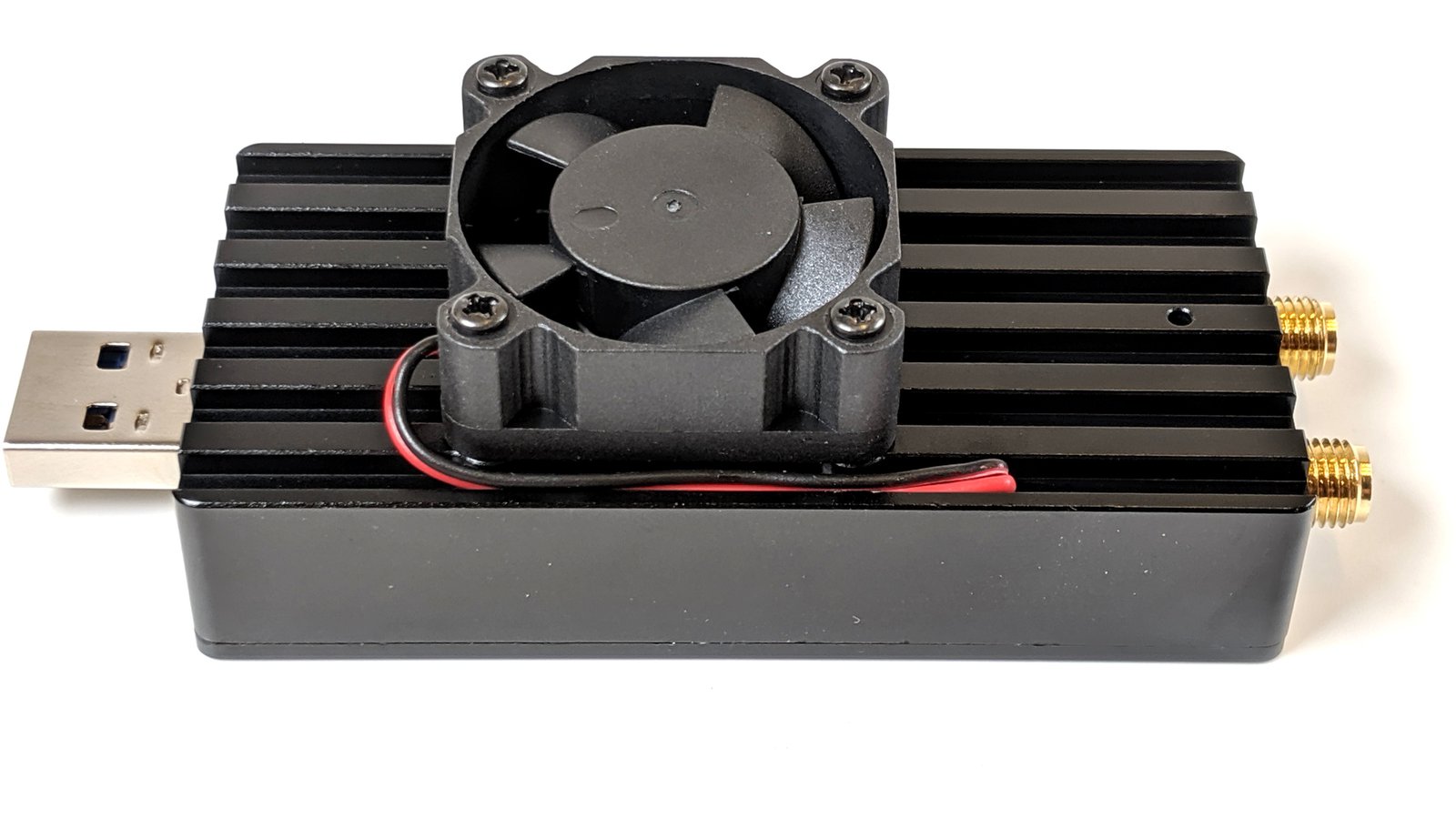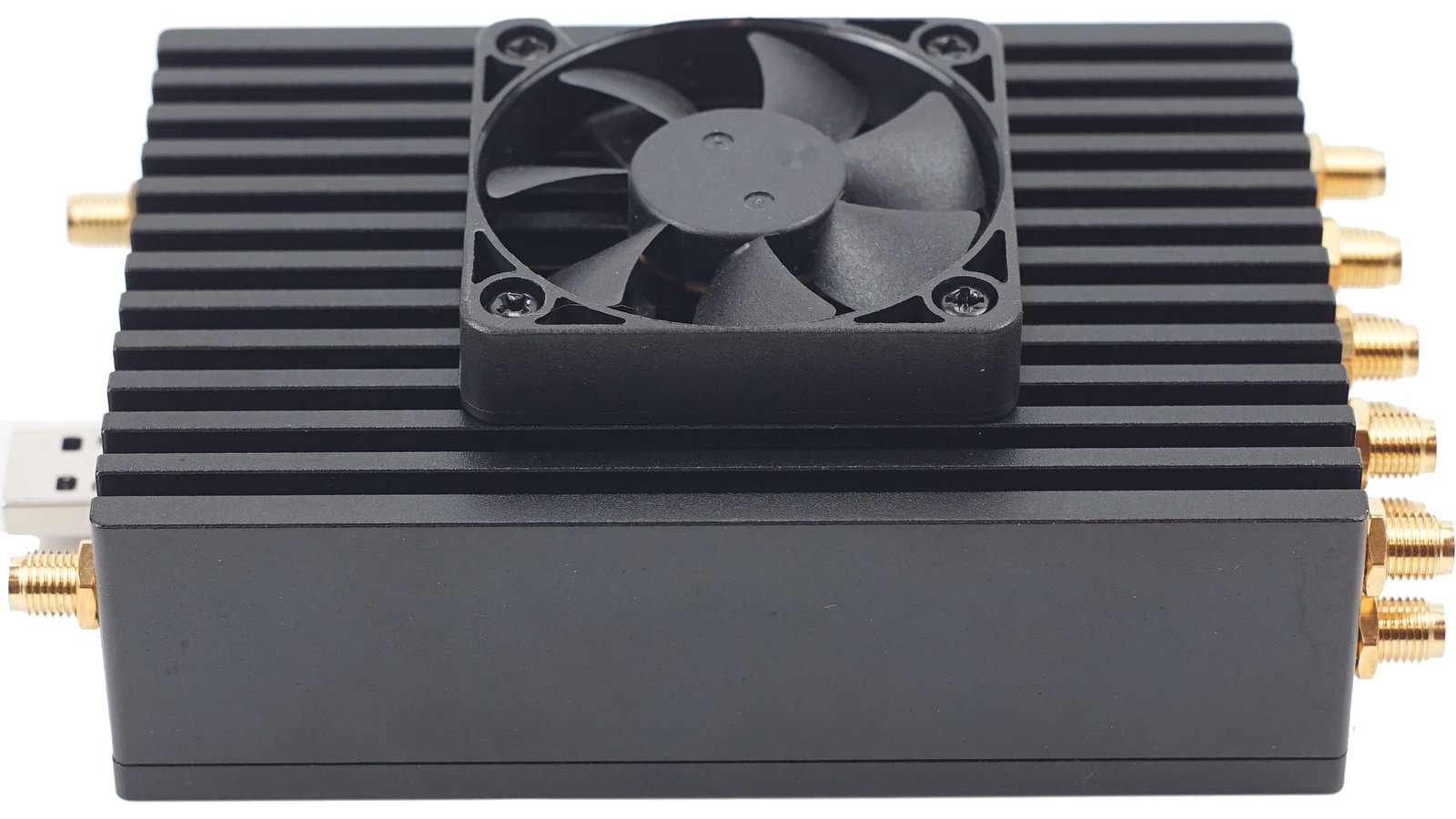HackerGadgets
Software Defined Radio
Lime Microsystems
HackerGadgets
Software Defined Radio
Lime Microsystems
Lime AC (Active Cooling) Cases are designed for LimeSDR users who want to better manage heat generated by their devices. The cases also make LimeSDRs more portable - protecting the PCB from damage - while they provide RF shielding for enhanced performance. We designed one case for the LimeSDR Mini and three versions for the LimeSDR USB Type-A.
Installation note: For the v1.0 cases (manufactured during the campaign): In order to install a LimeSDR Mini in the case, the on-board RF shield must be desoldered. This allows for proper thermal conductivity. An RF shielding sponge replaces the functionality of the on-board shield.
For the v1.1 case (available after Sep 2020): we changed the heat dissipation solution for the LMS7002 chipset by connecting the original RF shield to the case, and connecting the chipset to the RF shield with the thermal pad. Previously, the chipset was directly connected to the case through a custom made RF shield. We made this change so that the heat dissipation solution won’t have any negative effect on the RF performance.
The new solution looks like a sandwich:
| top case | thermal pad | RF Shield | thermal pad | LMS7002 |
The PCB is tightly clamped in the case. The LimeSDR Mini fits snugly in its case, while the LimeSDR-USB Type-A is fixed to the base case with screws. This design will prevent your board from being damaged if it happens to fall while installed in the case.
Anyone who uses a LimeSDR Mini for an extended period of time knows that it gets pretty hot. That’s why we added a fan to actively cool your LimeSDR so you can keep using it longer and without fear of heat damage (to the board or your hands). The fan is detachable from the case, if you don’t want to use it all the time.
The full LimeSDR board is shielded by the aluminum case to isolate external electromagnetic interference.
LimeSDR boards have indicator LEDs that are quite useful, so we wanted to be sure those are still properly visible in the cases. So those LEDs are sent through light pipes to the outside of the case. Our philosophy is that once the case is assembled, you’ll never have to disassemble it.
There are four M3 size mounting holes on the bottom base in 1.1 version (1.1 version cases began being sold in September 2020), so that you can easily mount the case in your product.
How does the Lime AC Case compare to other available cases?
| Lime AC Case | Acrylic Case From Lime | Aluminum Case From Lime | ||
|---|---|---|---|---|
| Material | Aluminum | Acrylic | Aluminum | |
| Heat Sink | Yes | None | None | |
| Thermal Column | Yes | None | None | |
| Active Cooling | Yes | None | None | |
| RF Connectors Export | 6/12 | 4 | 4 | |
| Price (Mini) | $79 | $49 | $140 | |
| Price (USB Type-A) | $129 | $99 | $300 |
Along with thousands of other people, we are big supporters of the LimeSDR and LimeSDR Mini devices. But in our extended daily use, we noticed a few things that could be improved. As the SDR is a naked PCB, it can be damaged easily. Plus, the board generates a lot of heat - so much that you can’t even touch it after long-term use. So we decided to do something to solve these problems. First, we made a passive cooling case which you can see below.
This case worked well, so we took our design even further and added a fan for active cooling.
"Designed to provide both a protective enclosure and active, rather than the more usual passive, cooling, the Hacker Gadgets Lime AC Case connects heat sources on the LimeSDR Mini or LimeSDR USB to an aluminium chassis."
Produced by HackerGadgets in Guangzhou, China.
Sold and shipped by Crowd Supply.

An aluminum case for LimeSDR Mini, including one fan. This case is NOT compatible with LimeSDR Mini 2.0.

An aluminum case for LimeSDR USB Type-A, with one fan and 12 U.FL-to-SMA cables. This case allows for all on-board RF and CLK lines to be externally available.

· hackergadgets · hackergadgets.com
HackerGadgets is an open electronic hardware design team based in Guangzhou, China. We focus on open source hardware, including consulting on embedded systems design and hardware manufacturing. HackerGadgets is passionate and actively committed to Open Source projects and electronics education.